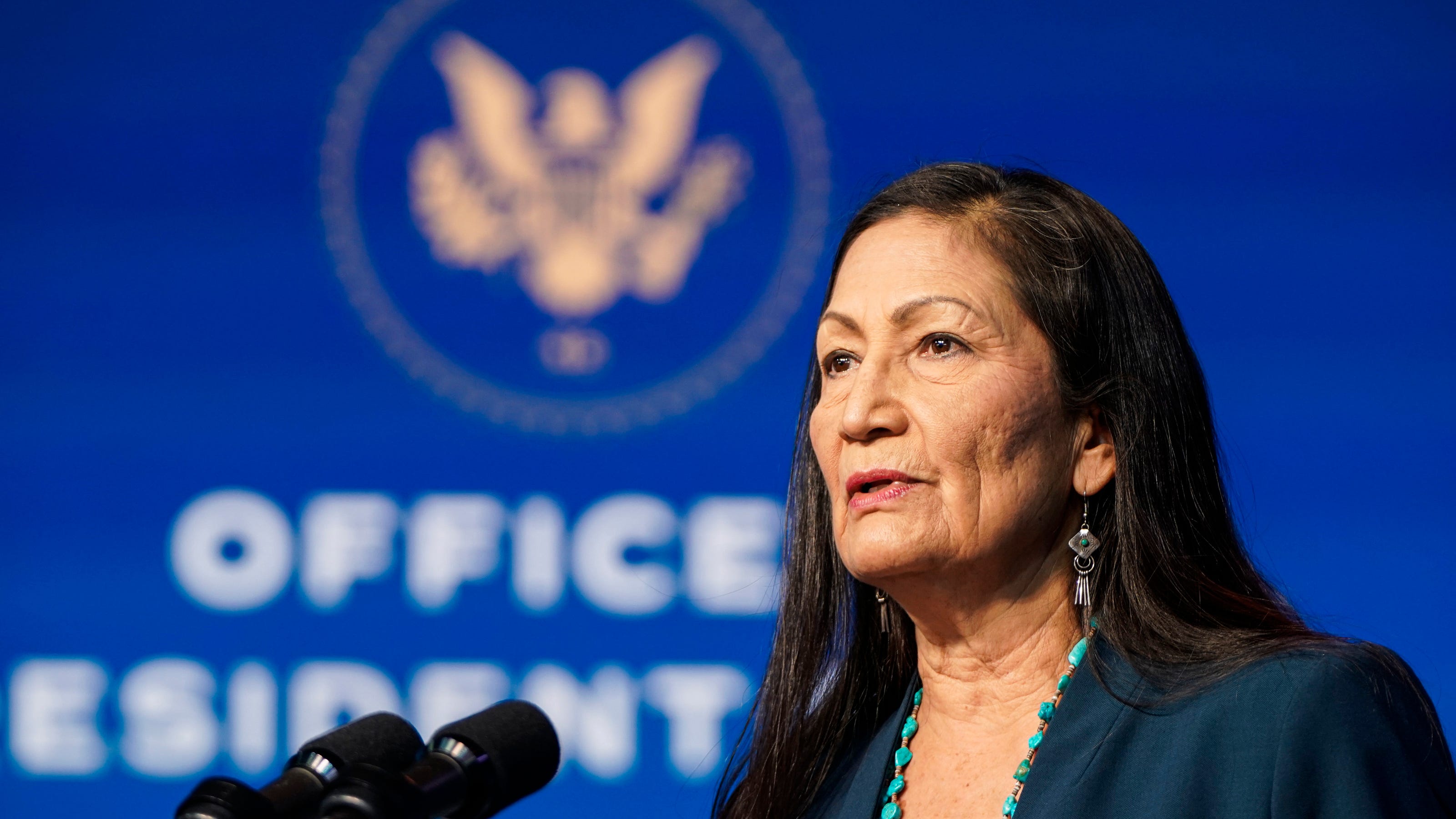It is an unequivocal fact that the 2020 Presidential election has concluded and that a clear winner has been chosen. However, there is still an important customary procedure that must occur for the new administration to be solidified, and that is the confirmation hearings of the newly-minted President’s prospective cabinet members. This process has historically been nothing short of contentious, and this confirmation is said to be the “most diverse array of residential counselors ever”, according to Politico, a journalism company that covers global politics and policy. So far, the Democratic stronghold within the Senate has allowed for the confirmation process to veer in favor of President Biden, with relatively strong bipartisanship shown for a majority of the nominees, but the cabinet is far from being confirmed.
One of the most highly discussed confirmations has been that of Representative Deb Haaland of New Mexico, who President Biden has nominated to lead the Department of the Interior, according to NPR. A member of the Laguna Pueblo in New Mexico, Haaland would be the first Indigenous person to manage the Bureau of Indian Affairs and Bureau of Indian Education, both bureaus within the Department of the Interior. This would also include oversight on more than 480 million acres of public lands and nearly a dozen federal agencies, including the National Park Service.
Haaland’s entry into a national political platform happened to be particularly notable - Haaland and Sharice Davids, a member of the Ho-Chunk from Kansas, were elected as the first Native American women to serve in the House of Representatives during the 2018 midterm election. Prior to this election, Native American Congressional leadership was sparse, with a total of four senators and fourteen congressmen having served in the history of the United States Congress. Two additional Native American women, Yvette Herrell and Kaiali’i Kahele, were elected during last year’s general election, the latter being only the second Native Hawaiian lawmaker to represent Hawaii in Congress after it became a state in 1959.
Despite the clear lack of Indigenous representation in Congress, pre-colonial America told a vastly different narrative. In an op-ed for the Washington Post, Native American journalist Sarah Sunshine Manning writes that pre-colonial nations such as the Haudenosaunee Confederacy saw clan mothers stewarding a robust central influence in governance and “were responsible for appointing tribal leaders and chiefs’’. Constructing the framework for many clans and communities, Indigenous women made fundamental decisions, including those that were inherently political and diplomatic, a symbol of their high-ranked status within the community. Not to mention that some nations were exclusively matrilineal, such as the Dine of the Southwest, allowing women to be the inheritors of ancestral property. Non-matrilineal nations also harbored a great deal of gender equity, but this balance was greatly fragmented with the arrival of colonists. Manning states that “Forced assimilation through federal government policies undermined the spiritual lifeways of indigenous people, who deeply valued feminine life sources, Mother Earth above all”, signifying a stark change in the role of Indigenous women in native communities. Such assimilation was enforced through a boarding-school system which forcefully conditioned them to conform to “American” norms and culture which “only trained Native girls in gendered, domestic tasks such as cooking and sewing”, according to Represent Women. Policies such as The 1887 Dawes/Allotment Act further exacerbated this fragmentation between Native girls and prospective leadership positions by “granting allotments only to male heads of households”. The repercussions for such infringement have been generational, as Indigenous women have suffered years upon years of “physical and sexual assaults at the hands of white men and colonial forces’’, making Native American women the most likely demographic to experience sexual and physical assault.
Manning says that this watershed moment of elections for female Native American candidates such as Davids and Haaland is symbolic of an ongoing movement among Indigenous people to “reclaim traditional philosophies and tribal languages and to rethink education in tribal schools”, decolonizing institutionalized structures that were taken away from Indigenous communities. A large part of this identity comes with recentering the Native American women who wielded considerable power in communities that prioritized gender equity.
The United States has always done an infuriatingly poor role in acknowledging Native Americans as the original inhabitants of the land that European colonists forcibly took during brutal subjugation. It wasn’t until 1990 that Congress and President George H.W. Bush designated under a joint resolution that November would be known as Native American Indian Heritage month, introduced by Hawaii senator Daniel Inouye and congressional delegate Eni Faleomavaega of American Samoa, only specifying Alaskan Natives as a group under this resolution in 2008. Moreover, Native Americans weren’t made citizens of the United States until 1924 and weren’t given the right to vote in most states until 1948, making the recent waves of Native American leadership in Congress all the more imperative to ensuring that the voices of Native Americans are not smothered under ignorant leadership.
Recent strides to amplify Native American leadership, particularly Native American female leadership, includes a successful effort by the Cherokee Nation to seat a delegate in Congress. Cherokee Nation citizen Kimberly Teehee fulfilled this role through a movement heralded by Cherokee Nation chief Chuck Hoskin Jr., saying that it “reflects how far the Cherokee have come in terms of governance” in an article for the New York Times. First codified in the Treaty of Hopewell of 1785, the Cherokee nation was granted the right to send a “deputy” to represent them in the United States Congress. The 1835 Treaty of Echota would later allow the Cherokee nation the official right to send a delegate specifically to the House of Representatives, but up until the latter part of 2019, there had never been a delegate representing the sovereign Native American government. Ms. Teehee’s extensive background and experience with government and policy made her more than qualified for the role - she was a senior policy advisor for Native American affairs during the Obama administration and previously served as a congressional aide on Native American issues for more than a decade. Her appointment was set under the parameters of redefining relations between tribal leadership and Congress, one in which Native Americans have agency and influence over the decisions made related to the greater Indian Country, even though Ms. Teehee’s specific position is to represent the Cherokee Nation.
Following Ms.Teehee’s unanimous confirmation in August of 2019, she has possessed an extremely consequential bearing, working to rebuild from the long-lasting implications of European colonization. In a virtual event hosted by the Harvard Institute of Politics, Ms. Teehee details a recent partnership with Oklahoma State University to establish the first medical school on a reservation, as well as other actions to help with Native American COVID recovery, an area in which the United States government has done very minimal work in. She discussed the Cherokee Nation’s success in controlling the virus, including the implementation of policies such as “mask mandate[s], rapid testing, travel restrictions, and readily available PPE’’ despite the detrimental effects of the virus on other Indigenous communities due to a lack of adequate resources. The Nation has also mobilized to work with local restaurants and the USDA since the beginning of the pandemic, serving nearly 6.1 million meals even as Congress failed to append the Cherokee Nation to the first stimulus relief package. Ms. Teehee’s position has clearly resulted in monumental achievements for the Cherokee Nation even amidst Congress’s blind eye.
Congresswoman Haaland has similarly utilized her position to bring changes to issues that directly affect the Native American community, displaying a commitment to protecting Indigenous land from fossil fuel exploitation. Supported by a number of environmental and Native American groups, Haaland has always taken a fairly progressive stance in regards to climate change, a perspective that was viewed as far too “radical” for many senators present at the hearing. Given that Deb Halland, and many other Indigenous women, are providing an unprecedented platform to important Native-run grassroots efforts to dismantle Native American concealment, it is important to recognize the rich legacies of Indigenous women and their unwavering, commanding leadership now more than ever.

